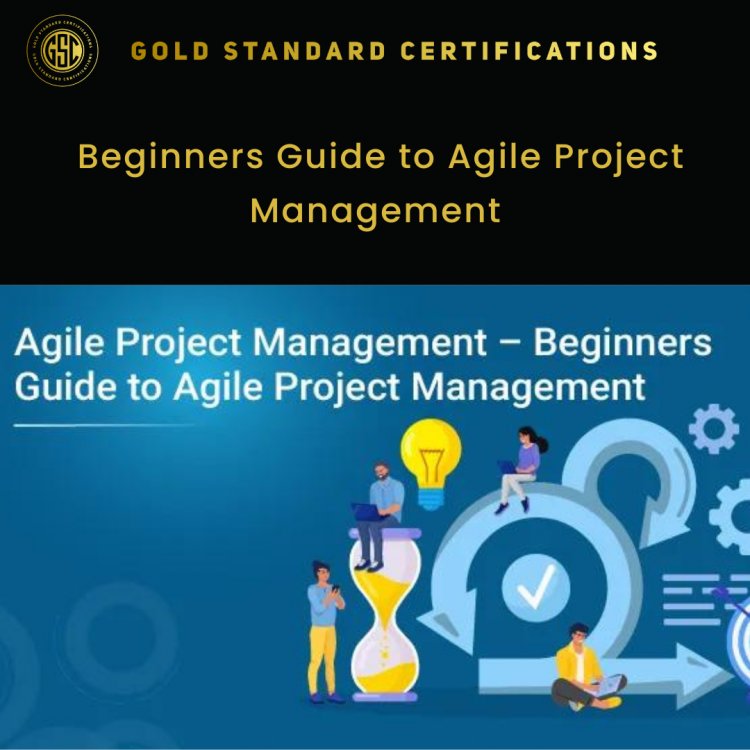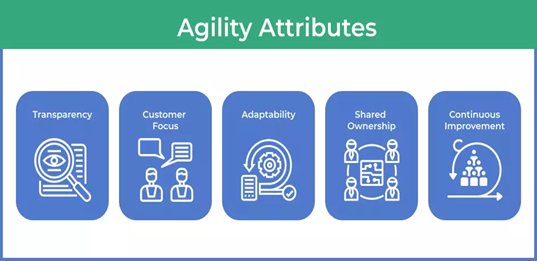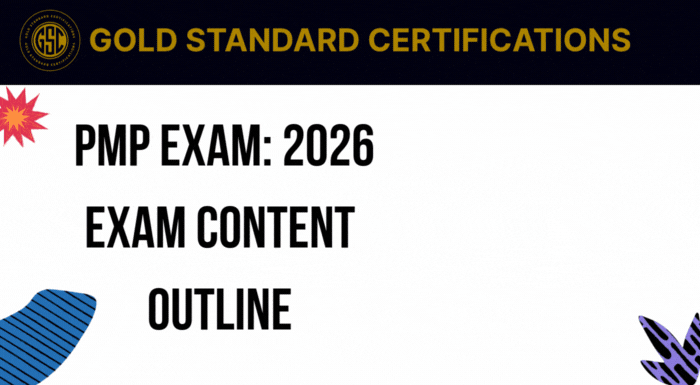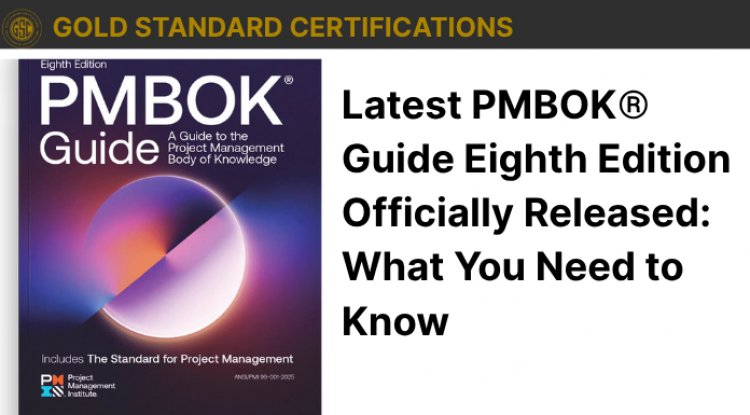Beginners Guide to Agile Project Management
Looking to implement Agile Methodologies? Here is the beginner's guide to agile project management, go through to learn more.

Are you looking for better management in your organization? You have landed in the right place of learning about Agile methodologies. Agile improves task management within the team, with agile software, there is adaptability, flexibility, and efficiency. It is a great tool for delivering quality work yet completing it within time. It eases the work for the team by meeting the needs of the customer. Currently, it is gaining popularity in the workplace for its productive outcome.
What is Agile Project Management?
Agile Project Management is an application used for the process of management. The organization collaborating with Agile Project Management, fastens the project delivery, more collaboration, and keeps up with the market trend. It breaks the progress of the project into smaller fragments for delivering high-quality products. It is not just limited to adapting plans but collaborative problem-solving methodology for modern-day problems.
Quick Statistics on Agile Project Management Software
- About 93% of companies with Agile methodologies have reported better customer satisfaction when compared to companies with non-agile methodologies.
- Around 97% of companies that have implemented Agile methodologies have reported success.
- 80% of marketers using Agile methodologies have found it as a useful management tool.
- 92% of the teams are confident to handle unexpected work or remote work by using Agile.
- About 93% of companies have reported better operational performance using Agile project management.
Why need Agile Project Management?
- The first and foremost feature is that it prioritizes the tasks, thereby saving time and cost.
- It focuses directly on the needs of customers.
- Enables adaptability for the team
- Overall control of Project
- Team collaboration and feedback
- Focuses on Problem- solving
- High-Quality Product
- Progress of the Project
The market requires early deadlines, collaboration, and flexibility, due to the fast-paced businesses. Developing a product might take a year, and by the time it hits the product, it might turn out to be outdated. Agile Project Management helps you overcome these problems for effective yet valuable delivery.
What are the Popular Agile Project Management Methodologies?
Learn about the popular agile project management methodologies, below is the list of those methodologies that help to pace up the progress of the project:
- Scrum: Though the structure of scrum is complex, it revolves around the basics which focuses on completing a set of tasks. The sprint lasts between 2-4 weeks, the product owner decides the product backlog and sprint backlog. The daily scrum helps with team meetings for discussion and to focus on the hurdles in task management.
Eg: Jira, Scrumwise, ClickUp etc.
- Kanban: Kanban is a simple task management tool designed for workflow efficiency. They primarily focus on the task, which is divided into three parts namely, to-do, currently working, and completed tasks. Kanban boards are placed on office premises, to focus on what’s important for the day.
Eg: Trello, Kanbanize, ProofHub
- Lean: It involves an agile framework that optimizes waste in the software development process and hence provides a high-quality product. It highly prioritizes the task and simplifies and modifications are rarely needed for the final product.
Eg: Leankit, Pivotal Tracker, etc.
- Extreme programming (XP): The software relies on five values namely communication, simplicity, courage, respect, and feedback. These values are retained as a framework. XP not only focuses on the results but throughout the process of work. They improvise the software quality and meet the customer requirements.
What are the benefits of Agile Project Management Methodologies?
Five attributes work as the building blocks of Agile methodologies. They are Transparency, Customer-focus, Adaptability, Shared Ownership, and continuous improvement.

Though there are several benefits of using Agile Methodologies, customer satisfaction is the bottom line. The benefits of Agile have a huge impact on increasing sales, maximizing revenue, and keeping up with the business reputation. Here are some of the benefits of using Agile Methodologies:
- Lesser Risk: As we all know, project development involves huge investments, as a project management professional one must look for reducing the risk. Through the sprints, the vendor can know about the timely development. Changes and feedback happen rapidly, with constant and continual development leading to great customer satisfaction.
- Quality of Product: Agile is an iterative approach, so every phase of the project is tested for its working condition before and after its release. With the sprints planned, the requirement of the customer is easily tracked and takes the project in the right direction.
- Greater ROI: Organizations implementing Agile methodologies yield a great ROI. Based on incremental development, customers will be able to launch the complete product within a given time frame.
- Customer satisfaction: Through Agile projects, customers get to witness the progress of the project. With faster delivery customers get to launch the product faster to the market. Customers get to engage with the development of the project, thereby offering feedback in every phase.
Also, learn about how Agile methodologies benefit the team. Here are the benefits for the team:
- Efficiency: Agile teams are highly efficient because there is collaboration within the team. When each person gets to focus on their tasks individually, work becomes a priority.
- Increases adaptability: Agile ensures that the team gets adapted to the changes, with task prioritization the time is utilized properly within the team. With adaptability, the skills are completely utilized for delivering high-quality products.
- Better Communications: There is continuous interaction within the team. Daily meetings play an important role to ensure the entire team is on the same track. Agile eliminates the confusion within the teammates, leading the team towards success.
- Prediction: Agile works on sprint methods, and ensures there is a fixed time duration making it easier for the team even during the short time. It simplifies the estimation process.
Want to become a PMI Agile Certified Practitioner?
If Agile Methodologies have brought you a positive response, then enhance your skills with Agile techniques. PMI-ACP has its approach towards Scrum, Lean, Kanban, Extreme Programming (XP), and test-driven development (TDD). Suppose you are working in an organization that has adopted agile methodologies, PMI-ACP is a great choice for you, it develops hands-on experience and enhances your skill as well.
Below is the list of certifications available for PMI for mastering Agile methodologies:
- PMI-ACP ( PMI Agile Certified Practitioner): Use the Agile principle to identify your skill and versatility, Get to learn about the principles and experience the practices of an Agile team
- DASM ( Disciplined Agile Scrum Master ): Through DASM, get to learn the fundamentals of agile approaches like scrum, kanban, SAFe® and how to implement the agile toolkit based on the business situations.
- DASSM (Disciplined Agile Senior Scrum Master): This course is tailor-made for accelerating the user's ability towards complex initiatives using Agile.
- DAVSC ( Disciplines Agile Value Stream Consultant): The course allows you to lead a team, and achieve your true business agility through DAVSC.
Agile Methodologies are a great factor in a project’s success. It is an enhanced requirement for the increase in business demands. They are beneficial for the project's development and it retains the innovation within the team, leading to high performance thereby delivering high-quality products. The challenge arises in the suitability of the company.














